Intro
As an expectant mother, it's natural to feel a mix of excitement and concern when experiencing unusual sensations during pregnancy. One phenomenon that can be particularly intriguing is baby hiccups in the womb. Feeling those tiny, rhythmic movements can be both fascinating and reassuring, as it indicates that the baby is active and developing normally. However, it's also common for mothers-to-be to wonder what causes these hiccups and whether they are a sign of any potential issues.
Baby hiccups in the womb are a relatively common occurrence, experienced by many pregnant women, especially during the second and third trimesters. These hiccups are characterized by a sudden, repetitive contraction of the diaphragm, which can cause the baby's movements to feel like a series of small, jerky motions. While the exact cause of baby hiccups is not fully understood, research suggests that they may be related to the development of the baby's nervous system and the maturation of the diaphragm.
The sensation of baby hiccups can be quite distinct, often feeling like a series of tiny, pulsing movements or a gentle, rhythmic twitching. Some women describe it as feeling like the baby is "getting the hiccups" or "twitching" inside the womb. While it can be a bit disconcerting at first, most mothers find the sensation to be harmless and even reassuring, as it indicates that the baby is active and developing normally. As the pregnancy progresses, the frequency and intensity of these hiccups may increase, especially during periods of fetal activity.
Baby Hiccups In Womb: What Do They Mean?
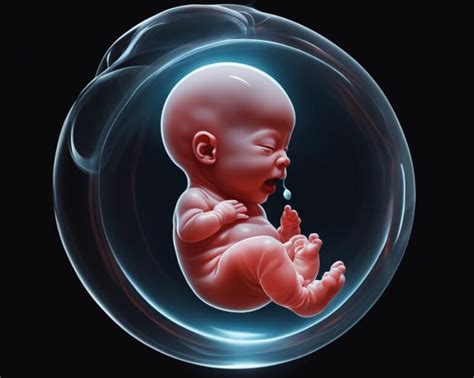
Baby hiccups in the womb can be an indicator of the baby's overall health and development. Research suggests that these hiccups may be related to the maturation of the baby's nervous system, particularly the development of the brain and spinal cord. As the baby's nervous system matures, it may experience periods of increased activity, which can manifest as hiccups. Additionally, the hiccups may be a sign that the baby is swallowing and digesting amniotic fluid, which is an important part of their development.
In some cases, baby hiccups may be more frequent or intense, which can be a cause for concern. However, in most cases, these hiccups are harmless and do not indicate any underlying issues. It's essential for expectant mothers to monitor their baby's movements and report any concerns or changes to their healthcare provider. Regular prenatal check-ups and ultrasounds can help monitor the baby's development and detect any potential issues early on.
Causes Of Baby Hiccups In Womb

Several factors can contribute to baby hiccups in the womb. Some of the possible causes include:
- Immature diaphragm: The diaphragm is a muscle that separates the chest cavity from the abdominal cavity. In fetuses, the diaphragm is still developing and may not be fully mature, leading to irregular contractions and hiccups.
- Swallowing amniotic fluid: Babies swallow amniotic fluid in the womb, which can stimulate the diaphragm and cause hiccups.
- Nervous system development: The maturation of the nervous system, particularly the brain and spinal cord, can cause increased activity and hiccups.
- Fetal movement: Babies are active in the womb, and their movements can cause the diaphragm to contract and produce hiccups.
It's essential to note that baby hiccups in the womb are a normal part of fetal development and do not typically indicate any underlying issues. However, if the hiccups are persistent, frequent, or accompanied by other concerning symptoms, it's crucial to consult with a healthcare provider to rule out any potential problems.
How To Monitor Baby Hiccups In Womb
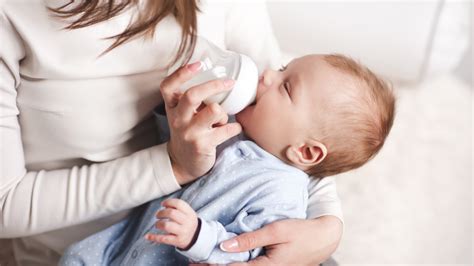
Monitoring baby hiccups in the womb can be an exciting and reassuring experience for expectant mothers. Here are some tips to help track and understand these movements:
- Keep a kick count: Counting the baby's kicks and movements can help identify patterns and monitor their activity.
- Pay attention to timing: Note when the hiccups occur, as they may be more frequent during certain times of the day or in response to specific stimuli.
- Monitor intensity: Pay attention to the intensity of the hiccups, as they may become more pronounced as the pregnancy progresses.
- Consult with a healthcare provider: If the hiccups are persistent, frequent, or accompanied by other concerning symptoms, consult with a healthcare provider to rule out any potential issues.
Regular prenatal check-ups and ultrasounds can also help monitor the baby's development and detect any potential issues early on. By staying informed and working closely with a healthcare provider, expectant mothers can ensure the best possible outcomes for their baby.
Tips For Managing Baby Hiccups In Womb
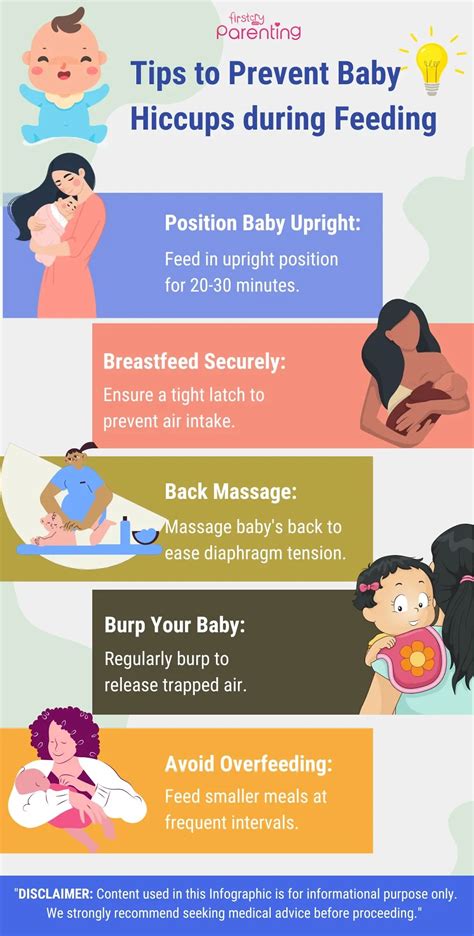
While baby hiccups in the womb are generally harmless, there are some tips that can help manage and alleviate them:
- Stay hydrated: Drinking plenty of water can help prevent dehydration, which can contribute to hiccups.
- Avoid stimulants: Caffeine, nicotine, and other stimulants can increase fetal activity and exacerbate hiccups.
- Practice relaxation techniques: Stress and anxiety can contribute to fetal activity, so practicing relaxation techniques like deep breathing, meditation, or yoga can help calm the baby and reduce hiccups.
- Get plenty of rest: Fatigue can exacerbate hiccups, so getting plenty of rest and prioritizing self-care is essential.
By following these tips and staying informed, expectant mothers can help manage and alleviate baby hiccups in the womb, ensuring the best possible outcomes for their baby.
Baby Hiccups In Womb: What To Expect
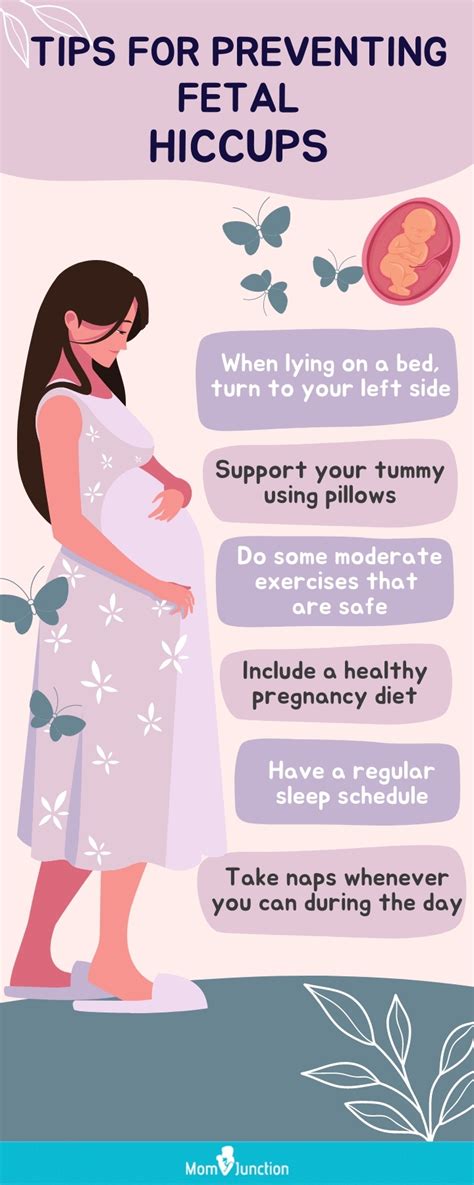
As the pregnancy progresses, baby hiccups in the womb can become more frequent and intense. Here are some things to expect:
- Increased frequency: Baby hiccups may become more frequent as the pregnancy progresses, especially during the third trimester.
- Changes in intensity: The intensity of the hiccups may increase or decrease, depending on the baby's activity level and development.
- Variations in timing: The timing of the hiccups may change, with some babies experiencing more hiccups during certain times of the day or in response to specific stimuli.
It's essential to remember that every pregnancy is unique, and the frequency and intensity of baby hiccups can vary significantly from one baby to another. By staying informed and working closely with a healthcare provider, expectant mothers can ensure the best possible outcomes for their baby.
Baby Hiccups In Womb: When To Seek Medical Attention

While baby hiccups in the womb are generally harmless, there are some situations where medical attention may be necessary. Here are some signs to watch out for:
- Persistent or severe hiccups: If the hiccups are persistent, severe, or accompanied by other concerning symptoms, it's essential to consult with a healthcare provider.
- Changes in fetal movement: If there are significant changes in fetal movement or activity, it's crucial to seek medical attention.
- Vaginal bleeding or discharge: If there is vaginal bleeding or discharge, it's essential to seek medical attention immediately.
- Severe abdominal pain: If there is severe abdominal pain or discomfort, it's crucial to seek medical attention.
By being aware of these signs and seeking medical attention when necessary, expectant mothers can ensure the best possible outcomes for their baby.
Baby Hiccups In Womb: Conclusion And Next Steps
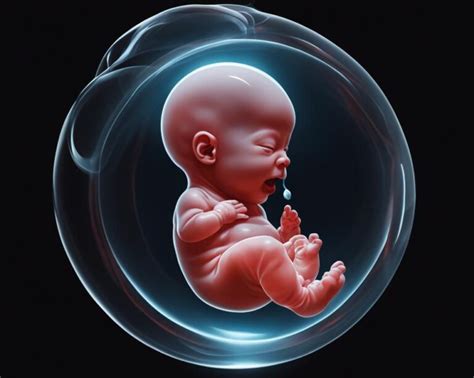
Baby hiccups in the womb are a normal part of fetal development and can be a reassuring sign of the baby's activity and health. By understanding the causes, monitoring the hiccups, and seeking medical attention when necessary, expectant mothers can ensure the best possible outcomes for their baby. If you have any concerns or questions about baby hiccups in the womb, be sure to discuss them with your healthcare provider.
Remember, every pregnancy is unique, and it's essential to stay informed and work closely with a healthcare provider to ensure the best possible outcomes for your baby. With the right knowledge and support, you can navigate the exciting and sometimes unpredictable world of pregnancy with confidence and joy.
What are baby hiccups in the womb?
+Baby hiccups in the womb are a normal part of fetal development, characterized by a sudden, repetitive contraction of the diaphragm, which can cause the baby's movements to feel like a series of small, jerky motions.
What causes baby hiccups in the womb?
+The exact cause of baby hiccups is not fully understood, but research suggests that they may be related to the development of the baby's nervous system and the maturation of the diaphragm.
How can I monitor baby hiccups in the womb?
+Monitoring baby hiccups can be done by keeping a kick count, paying attention to timing, and monitoring intensity. Regular prenatal check-ups and ultrasounds can also help monitor the baby's development and detect any potential issues early on.
We hope this article has provided you with a comprehensive understanding of baby hiccups in the womb. If you have any further questions or concerns, please don't hesitate to reach out to your healthcare provider. Share your experiences and thoughts with us in the comments below, and don't forget to share this article with your friends and family who may be interested in learning more about this topic.
